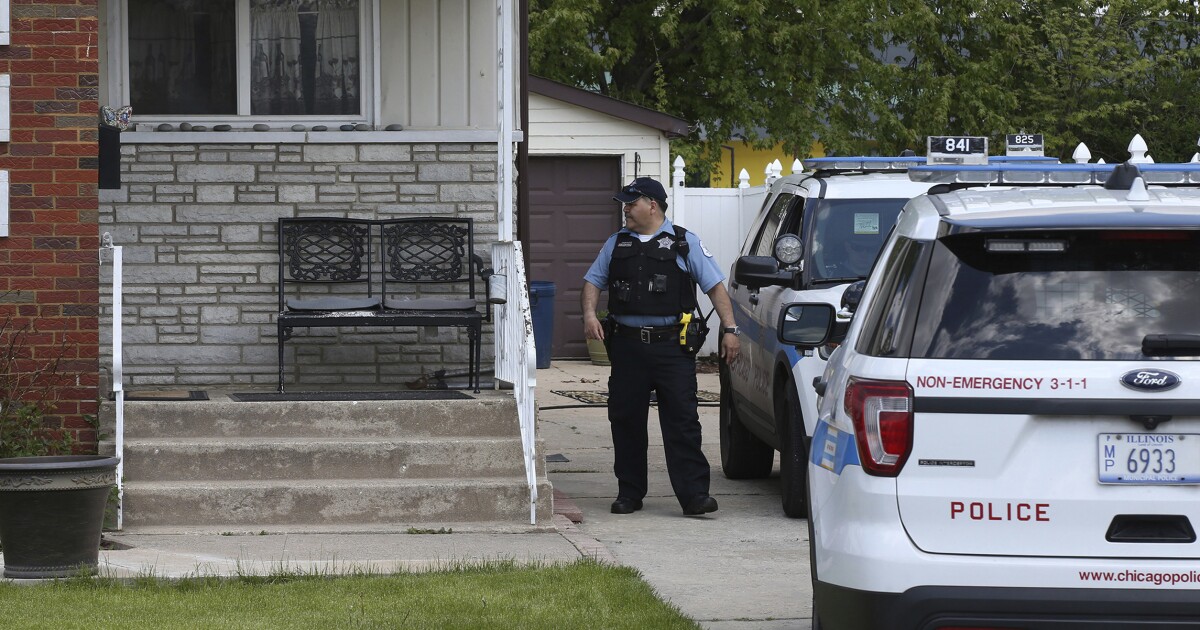

The Chicago Police Department is one of several law enforcement entities under the microscope as departments across the United States continue to face calls for vast reforms within the criminal justice system.
Several police forces have been criticized for their ability to meet the federal consent decree, which requires a community policing plan that addresses civil rights violations and use-of-force tactics. In the 4 1/2 years since Chicago entered the federal consent decree, its police department’s Bureau of Internal Affairs has launched over 11,000 investigations into allegations of misconduct, according to a Chicago Tribune analysis.
CALIFORNIA BUDGET DEAL: NEWSOM CELEBRATES AGREEMENT WITH STATE LEGISLATURE
Internal affairs investigations involved bribery and corruption, officer substance abuse, criminal misconduct, and other alleged violations of police department rules. As of April 2023, over 3,600 internal affairs investigations were open.
Most of the referrals to internal affairs came from the Civilian Office of Police Accountability, the city agency tasked with investigating Chicago officers’ use of force. The civilian office has opened over 4,000 investigations on its own since the beginning of 2019, according to city records.
Internal affairs investigations most often involved officers assigned to the department’s 22 patrol districts, which consist of officers in full uniform traveling in marked police vehicles. Of the 22 districts, those with higher rates of gun violence tend to see the most misconduct allegations, according to police data.
Three of those districts — which cover West Garfield Park, Auburn Gresham, Roseland, and Pullman neighborhoods — were the subjects of 755 investigations within internal affairs between January 2019 and April 2023, per the Chicago Tribune. At the same time, those districts recorded over 850 homicides, with nearly 3,500 people suffering non-fatal gunshot wounds.
According to its dashboard, the Chicago Police Department is in “full compliance” with less than 5% of its 552 consent decree requirement paragraphs.
The federal consent decree stemmed from the 2014 death of Laquan McDonald, a 17-year-old who was murdered by a Chicago police officer. The U.S. Justice Department opened a pattern-or-practice investigation after a Cook County judge released the video of the shooting. The DOJ’s report ultimately led to a federal lawsuit led by then-Illinois Attorney General Lisa Madigan that resulted in the decree.
Several cities, such as Seattle and Baltimore, have federal consent decrees. Minneapolis is preparing to negotiate a federal consent decree that would install an independent monitor of its police force.
The revelation of Chicago’s investigation and compliance data comes as the city prepares to select its next Chicago Police Department superintendent from a pool of 53 candidates. The new superintendent will take on the heavy burden of managing the city’s police programs, particularly as crime continues to rise among youth offenders.
CLICK HERE TO READ MORE FROM THE WASHINGTON EXAMINER
The city’s Community Commission for Public Safety and Accountability has to present three candidates to Mayor Brandon Johnson by July 14. As of June 22, Anthony Driver Jr., the head of the commission, told ABC 7 News they are about 80% done with the interview process and he is “very close to being able to submit three names to Mayor Johnson. We will meet or exceed that deadline.”
After being presented with the candidates, Johnson will have 30 days to appoint one or ask for another group of candidates to review. Once he chooses a candidate, that person will need to be approved by the Chicago City Council.





